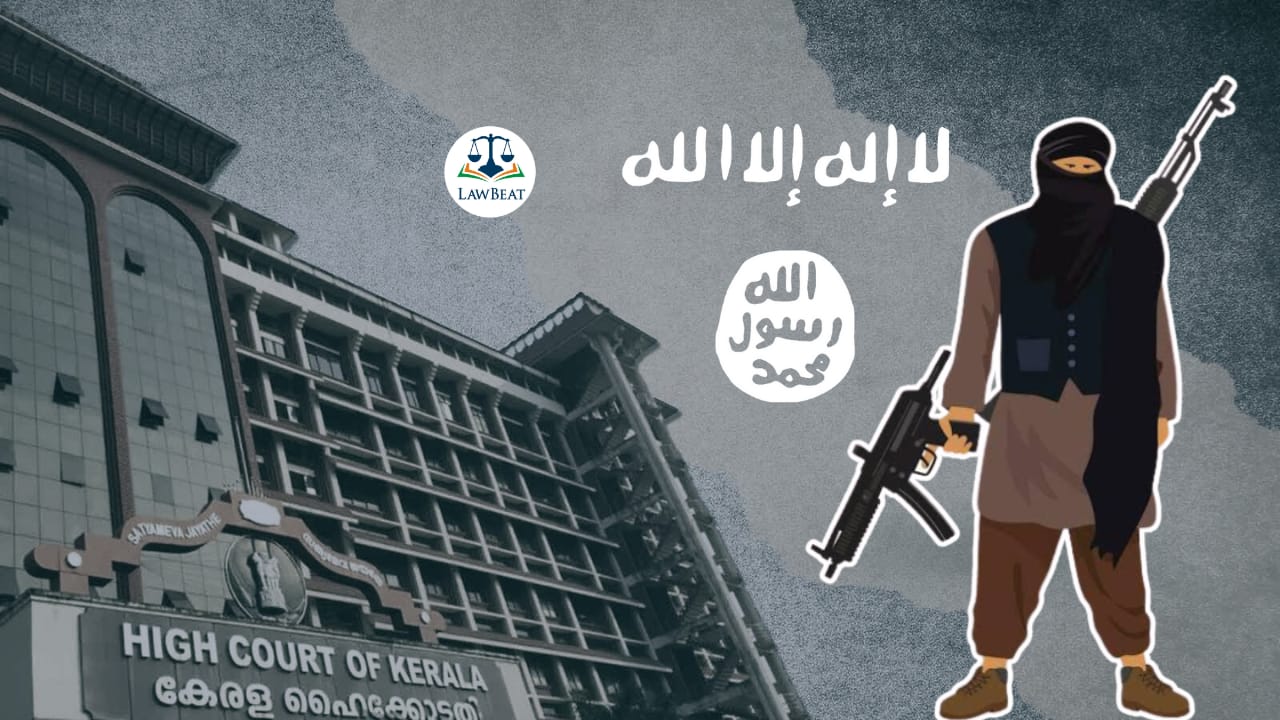Propagated ISIS Ideology, Advocated War Against Non-Muslims : Kerala HC Upholds Conviction of Riyas Aboobakkar

The court upheld the accused's guilt but reduced the sentence, citing the absence of other criminal activities and noting that is actions were motivated by religious ideologies, warranting mercy
The Kerala High Court has upheld the conviction of Riyas Aboobakkar under Sections 38 and 39 of the Unlawful Activities (Prevention) Act (UAPA) and Section 120B of the Indian Penal Code (IPC) for Criminal Conspiracy. The court found Aboobakkar guilty of actively propagating ISIS ideology and advocating war against non-Muslims.
A Division Bench of Justice Raja Vijayaraghavan V and Justice Jobin Sebastian, confirmed the conviction order passed by the Special National Investigation Agency (NIA) Court, Ernakulam, stating that “We have no doubts in our mind that the acts proven against the accused would clearly attract Sections 38 and 39 of the UA(P) Act and the findings of the learned Sessions Judge to that effect does not warrant any interference.” However, the court reduced the sentence from 10 years to 8 years of rigorous imprisonment after considering mitigating factors.
The case originated from a 2016 investigation into individuals who went missing and were later found to have joined ISIS. The Special Investigation Team discovered that Aboobakkar (accused) was in contact with those who facilitated the migration of individuals to ISIS-controlled territories. The accused was also found to have admiration for Zakir Naik, banned under the UAPA, and having chatted with ISIS leader Zahran Hashim, mastermind of the 2019 Easter Blast. The accused shared messages affirming jihadist beliefs and posted images on Facebook displaying the ISIS-associated raised index finger gesture, symbolizing their fundamentalist tawhid ideology, which rejects any other view, including other Islamic interpretations, as idolatry and rejection of pluralism.
The court affirmed that Aboobakkar had actively propagated ISIS ideology that everyone should become militants, kill people of other faiths, and liberate various regions worldwide, including Kashmir. It was established that he conspired to further ISIS activities, planned suicide attacks, and disseminated propaganda through social media and in-person conspiracy meetings.
The court relied on testimony from two approvers who corroborated digital evidence, including call records, emails, and social media activity. The court emphasised that the evidence showed Aboobakkar's clear intent to support ISIS, which included sharing inflammatory content, organizing meetings, and planning terrorist acts.
“We are of the view that the trial court has rightly held that the prosecution has succeeded in proving that … the accused were radicalized through the ideologies of ISIS, a terrorist organization. It has also been established that the accused was a party to the criminal conspiracy to further the activities of the terrorist organization and to garner support by migrating to ISIS controlled territories. It has also been established that the accused had associated himself and had professed to be associated with ISIS, with intent to further its activities. Materials also clearly reveal that the accused with intent to further the activities of the proscribed organization had invited support and thereby committed the offence punishable under Section 120B of the IPC r/w. Sections 38 and 39 of the UA(P) Act and Sections 38 and 39 of the UA(P) Act” observed the court.
The court concluded that the sentence imposed on the accused/ appellant for offences under Sections 38 and 39 of the UAPA should be reduced to 8 years of rigorous imprisonment instead of the 10 years imposed by the Special Judge. The decision was based on factors including the appellant's young age of 29 years, at the time of the offence, the lesser sentences given to co-accused in similar circumstances, the absence of involvement in other crimes, the motivation driven by religious ideologies, and the potential for rehabilitation. The court stated : “The appellant being an Indian citizen, the sentence imposed must be stern but tempered with some amount of mercy.”
Cause Title: Riyas A @ Riyas Aboobakkar @ Abu Dujana v. Union of India [CRL.A NO. 783 OF 2024]
